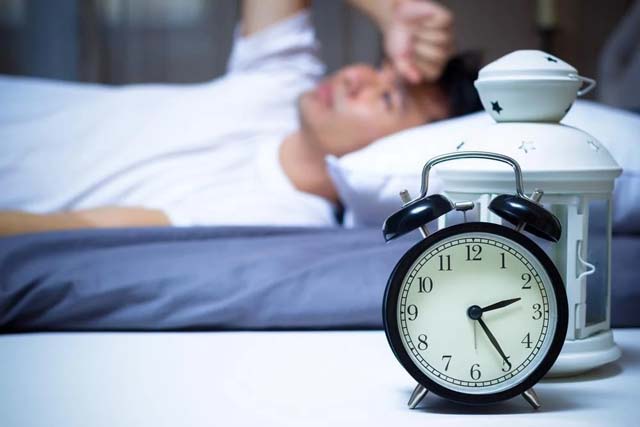Relating parental stress to sleep disorders in parents and children Summary Aim To assess whether children’s sleep disorders are positively correlated with parental insomnia, hypersomnia, and sleep apnea, and whether parental and child sleep disorders are simultaneously positively associated with parental stress. parents. Possible modifying influences on these associations by age, sex, and marital status will be considered. Methods Analyzes are based on 14,009 employees ages 18 to 64 with dependent children (n = 44,157) insured by Deseret Mutual Benefit Administrator (DMBA) in 2020. Rate ratios are adjusted for age, sex, and marital status. Results The rate of parental stress is 3.00 (95% CI 2.33–4.85) times higher for those with insomnia and 1.88 (95% CI 1.59–2.22) times higher for those with Sleep apnea. There is no increased risk of stress for people with hypersomnia. The number of dependent children who file one or more medical claims for a sleep disorder is 2.0%. The mean age is significantly higher among those with a sleep disorder (17.1 vs. 14.4, t p < 0.0001). Childhood sex is not associated with the risk of having a sleep disorder. The employee insomnia rate is 111% higher if their child has a sleep disorder, and the employee sleep apnea rate is 115% higher if their child has a sleep disorder. The association between childhood sleep disorders and sleep apnea decreases with employee age (Wald chi-square p = 0.0410). Employee stress rates are 90% higher if your child has a sleep disorder, 189% higher if they have insomnia, and 81% higher if they have sleep apnea. The strength of the association between insomnia and stress is greater for women (Wald Chi-square p = 0.0114), between sleep apnea and stress is greater for women (Wald chi-square p = 0.0114), 0010) and between sleep apnea and stress is greater for singles (Wald chi-square p = 0.0010). Conclusions Better understanding the connection between parent and child sleep problems and parenting stress, and modifying the influences, may improve the treatment of these disorders. |
Comments
The rate of parenting stress is higher among parents who have sleep disorders or have children with sleep disorders, according to a new study published this week in the open access journal PLOS ONE by Ray Merrill and Kayla Slavik of Brigham University. Young, USA and colleagues.
Sleep disorders and stress are known to have a bidirectional correlation: stress promotes sleep disorders and sleep disorders promote stress. Among parents, it is believed that there is a complex interaction between their own sleep, stress, mood and fatigue and their children’s sleep.
In the new work, researchers analyzed data from 14,009 employees insured by Deseret Mutual Benefit Administrator (DMBA) in 2020, all of whom had dependent children. Overall, 2.2% of employees filed medical claims to treat stress and 12.5% filed claims to treat a sleep disorder, including insomnia, hypersomnia, or sleep apnea. 2.0% of children had one or more medical claims for a sleep disorder.
The researchers found that, after adjusting for age, sex, and marital status, rates of stress are 1.95 (95% CI: 1.67-2.28) times higher in employees with a sleep disorder. Specifically, stress rates are 3.00 (95% CI 2.33-4.85) times higher for those with insomnia and 1.88 (1.59-2.22) times higher for those with sleep apnea. Furthermore, the employee stress rate is 1.90 (95% CI 1.33-2.72) times higher if their child has a sleep disorder, and 2.89 (95% CI 2.20-3, 80) times higher if your child has insomnia. The study also found that if a child has a sleep disorder, the rate of parental insomnia and sleep apnea almost doubles.
The authors conclude that a better understanding of the connections between parent and child sleep quality and parenting stress may help improve treatment and reduce the risk of these disorders.
















